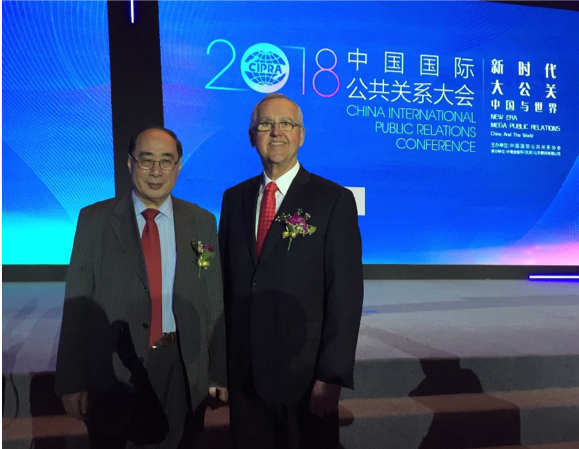CORPORATE DIPLOMACY: NOT QUITE BUSINESS AS USUAL
Robert Grupp
Adjunct Instructor and Director, Global Strategic Communication Master’s Degree Program
College of Journalism and Communications, University of Florida
As the recent U.S. mid-term elections demonstrated, it is particularly difficult to have conversations about politics and social issues with people who hold views different than your own. These conversations are always challenging, but when people function in an echo chamber hearing their own beliefs from everyone around them (and likely in the media they consume), it’s even more difficult to offer a different viewpoint.
Yet, I consider reasonable discourse to be an essential skill for public affairs and communications professionals, especially in this hyper-polarized environment. That’s why I coach University of Florida students in my graduate class in Public Affairs Communication to have reasonable conversations on contentious topics they are passionate about while respectfully responding to other points of view.
We explore techniques to avoid having biases sink conversations with fellow students (or employees, customers
I took the same approach more broadly in Beijing recently where I had the privilege of addressing 300 colleagues at the China International Public Relations Conference. My point—and a key takeaway I leave with colleagues I visit across the world—is that our mission as public affairs communication professionals is to build bridges for business between countries.

Speaking in China 13 years ago, I called it “corporate diplomacy.” This is where business, collaboration, diplomacy
Corporate Diplomacy means a company embeds the value of collaboration deeply into its operations and practices, extending the reach of its relationships to include groups, cultures, organizations and government, which affect the sustainability of the business.
This is the practice of non-governmental, informal and unofficial contacts and activities between organizations, private citizens or groups of individuals. This so-called “track-two” or “backchannel” diplomacy is not a substitute for official diplomatic negotiation. Rather, it assists official actors in managing and resolving conflicts by exploring possible solutions outside of public view and without the requirements of formal negotiation or bargaining for advantage.
As companies increasingly look for growth and revenue opportunities in emerging markets, frontier markets and foreign markets, corporate diplomacy becomes important. Aerospace, oil exploration and technology companies are a few among many examples of industries that face significant challenges expanding into new markets.
Third-party public affairs professionals can bring leaders together from opposing sides in interactive, off-the-record contacts to introduce “win-win” concepts, train negotiating skills, and create interpersonal cohesion by building within them a sense of interdependence and need to work together in their mutual interests.
Corporate affairs officers can be influential in achieving these outcomes. What defines this new breed of corporate affairs officer is the role as trusted advisor. They have not only the ear and the confidence of the CEO, but also a mandate from senior leadership to provide direct input into strategy.
Executives acknowledge that talent of this caliber is scarce. Demand is growing among progressive multinational companies, which recognize the importance of close alignment among strategy, reputation, public affairs, communications, and government affairs within an increasingly complex business, legislative and regulatory environment.
Chinese-American cooperation is essential if the world is to weather another financial crisis, make progress on things like climate change and global supply chains. Emphasis ought to be on avoiding unilateral actions that could trigger a crisis. It would be foolish, in my opinion, to give up on the prospect of managed cooperation.
Despite the recent escalation in bilateral tensions, the economies of China and the United States are enmeshed in the global economy. Competition between China and the United States should not be a bad word.
At the national government level, there are issues to work out, but analysts seem to agree the world will continue to integrate, especially in manufacturing, communications and technology.
Let’s identify ways to work together. As strategic communications officers let’s lead changes both in the perception of our people and in the practice of public affairs and public relations during these turbulent and unpredictable times.
This requires inspired leadership from within the public affairs and communications profession. After all, we public affairs people are living in a world that our profession is perfectly suited to serve.
Posted: December 4, 2018
Category: Grupp's Column, UF CJC Online Blog


